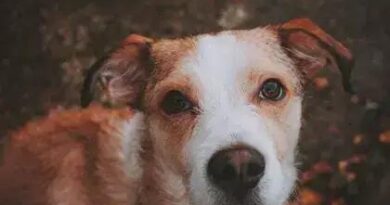O que é juvenile dog training
What is Juvenile Dog Training?
Juvenile dog training refers to the specialized training techniques aimed at dogs that are in their adolescent stage, typically between six months and two years of age. During this critical period, dogs experience significant behavioral changes and developmental milestones. Understanding the nuances of juvenile dog training is essential for pet owners who wish to cultivate well-mannered and socially adept companions.
The Importance of Early Training
Early training is crucial for juvenile dogs as it sets the foundation for their future behavior. This stage is marked by increased curiosity and energy, making it an ideal time for owners to introduce basic commands and socialization practices. By engaging in consistent training during this phase, owners can prevent the development of undesirable behaviors that may arise if left unaddressed.
Common Challenges in Juvenile Dog Training
Owners may encounter various challenges during juvenile dog training, including stubbornness, distraction, and impulsiveness. Juvenile dogs often test boundaries, which can lead to frustration for both the pet and the owner. Recognizing these challenges is the first step in developing effective training strategies that cater to the unique needs of adolescent dogs.
Positive Reinforcement Techniques
Positive reinforcement is a cornerstone of effective juvenile dog training. This method involves rewarding desired behaviors with treats, praise, or playtime, encouraging dogs to repeat those behaviors. By focusing on positive reinforcement, owners can foster a trusting relationship with their juvenile dogs, making training sessions more enjoyable and productive.
Socialization During Juvenile Training
Socialization is a vital component of juvenile dog training. Exposing dogs to various environments, people, and other animals helps them develop confidence and adaptability. Proper socialization during this stage can prevent fear-based behaviors and aggression in adulthood, ensuring that dogs grow into well-adjusted pets.
Setting Realistic Goals
When embarking on juvenile dog training, it’s essential to set realistic and achievable goals. Owners should focus on specific behaviors they wish to reinforce, such as sit, stay, or come. Breaking down training into manageable steps allows for gradual progress, which can boost both the owner’s and the dog’s confidence throughout the training process.
The Role of Consistency
Consistency is key in juvenile dog training. Establishing a routine for training sessions helps reinforce learning and ensures that dogs understand what is expected of them. Whether it’s using the same commands or maintaining a regular training schedule, consistency aids in solidifying the training process and promoting better behavior.
Incorporating Play into Training
Incorporating play into juvenile dog training can enhance the learning experience. Engaging in fun activities not only keeps the dog motivated but also strengthens the bond between the owner and the pet. Activities like fetch or tug-of-war can be integrated into training sessions to make learning enjoyable and effective.
Seeking Professional Help
For owners facing difficulties in juvenile dog training, seeking professional help can be beneficial. Professional trainers can provide tailored advice and techniques that cater to the specific needs of the dog. Additionally, group classes can offer valuable socialization opportunities for juvenile dogs, further enhancing their training experience.
Monitoring Progress
Monitoring progress is an essential aspect of juvenile dog training. Owners should regularly assess their dog’s behavior and training outcomes to identify areas that require additional focus. Keeping a training journal can be a helpful tool for tracking improvements and adjusting training strategies as needed.


